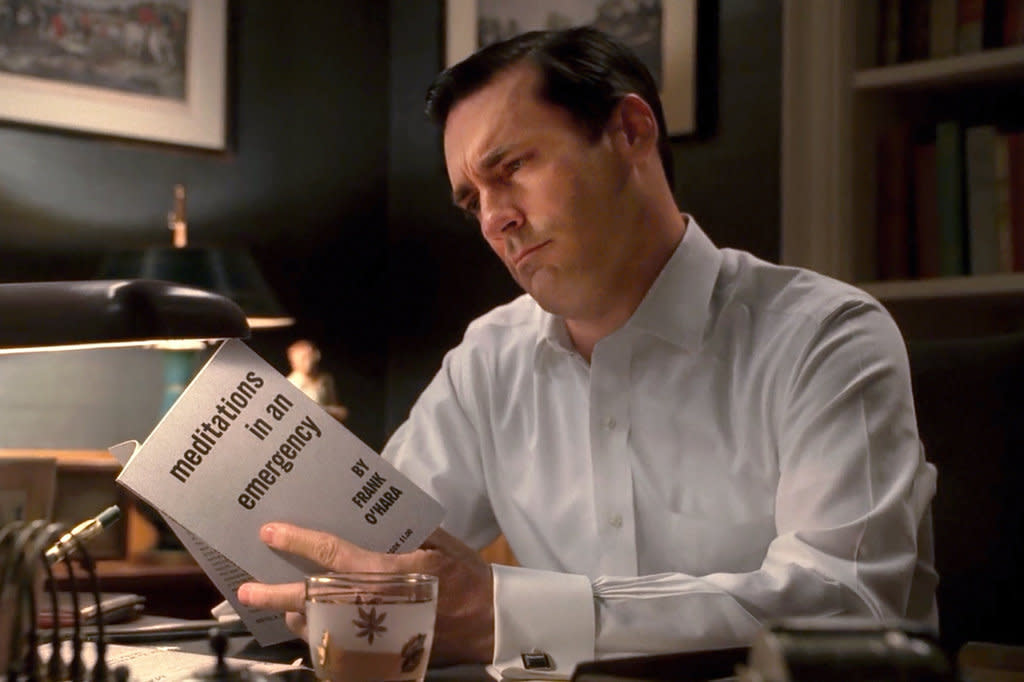Listen to ‘Mad Men’ Creator Matthew Weiner Read Frank O’Hara’s Poetry

On this day in 2007, Mad Men premiered, launching this creation of Matthew Weiner into the world. The series immediately began its task of reminding or introducing its audience to scores of historical and cultural events from the 1960s and ’70s. Among these was the poetry of Frank O’Hara (1926-66) — who, along with John Ashbery and Kenneth Koch, were the deans of what came to be known as the New York School of Poets. And so today, Weiner is releasing an audio recording: His readings from Lunch Poems (1964), O’Hara’s most famous collection, released by Audible.
In the first episode of the second season of Mad Men, Don Draper is shown reading the poem “Mayakovsky” from O’Hara’s collection Meditations in an Emergency (1957). Ever the stickler for accuracy, Weiner has noted, “In my mind, Don bought the book Lunch Poems. But that had not come out yet, so we had to use Meditations in an Emergency. I read a little bit of it and said, ‘We’ll use this. It has a great cover; it’s very ‘period.’”
Weiner’s readings of the poems, based on three that Audible sent me for review, are admirably straightforward. Listen to him reading “Cambridge.” Weiner avoids any excessive emotionalism, if occasionally slipping into a somewhat monotonous drone. (He does muster an amusingly exasperated, appropriately campy “Lana Turner has collapsed!” exclamation when reading the poem titled “Poem.”)

Weiner’s choice of O’Hara for Mad Men — as opposed to, say, a bigger-name poet of that era, such as Allen Ginsberg — was very shrewd, because O’Hara was very much a polished, drily witty, cosmopolitan poet and therefore one that matched Draper’s image of himself. And, like Draper, there were enormous reserves of complex emotions, ambivalence and passion. Here’s O’Hara himself, reading “Having a Coke With You.”
The best thing about this project is that it never feels like a stunt or a vanity project; you can hear in Weiner’s readings his sincere desire to bring O’Hara’s great work to a wider public.

